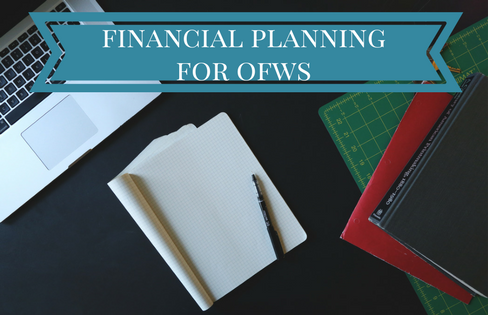Many OFWs agree on one thing: they work abroad for money. Money could help provide a better and more secured future for the family, which is why you are willing to make that sacrifice.
Here’s the thing: working overseas and sending money back home are just the first two steps in achieving financial freedom. In fact, many OFW families are either financially broke or have no sufficient savings or investment – and surely, you don’t want to be one of them.
The key here is proper financial planning. Here’s what you need to know about and how to start with financial planning: 
Monthly Income
Admit it. Earning in dollars gives you a sense of pride and fulfillment, knowing that you can provide better for your family. Still, don’t let the dollar sign in your payslip forget the reason why you are working overseas and spend more than your usual.
Keep in mind that the cost of living in other countries is higher compared to the Philippines. Before you splurge, make sure you get to know the place where you are assigned. Check the prices of essential goods, cost of rent (if house is not provided), food, and transportation. If time permits, consider getting a second job for added income.
Budgeting
Now that you identified how much you will be spending, it’s time to set a budget. It may not seem a lot, but budget can be a lifesaver. It teaches you the value of discipline since you set aside portion of your earnings for equally important things. At the same time, it helps you keep track of your spending and allows you to adjust certain areas in order to save more.
Start by listing all your expenses everyday, no matter how big or small your purchases are. Make this a part of your daily routine until you are able to create a realistic budget.
When it comes to budget, make sure you won’t miss this next part.
Remittances
Sending money back home is mandatory. In fact, this will always be part of your budget. Still, here is something you need to remember: don’t send all of your earnings.
Many OFWs send more than half of their salary and leave little for themselves. This may be a selfless act, but you’ll end up with nothing when the real emergency comes in. Include remittance in your budget, but make sure you consider other expenses too. You may be earning in dollars, but it is not your sole responsibility to provide for the family – and the rest of your relatives.
Savings
Since you set aside money for remittances, make sure you leave something for savings as well.
To make it easier for you to save, think of a goal you want to achieve by the end of your contract. It could be a new car or a small business for your family to help augment the expenses. Use that as a motivation to encourage you to save more.
Here’s a tip: open a savings account, preferably with online banking facility. If you can, don’t inform your family about this, so you won’t be tempted to withdraw anytime. Transfer portion of your earnings and do your best not to use the funds. Consider this as your emergency fund so you have something to use in case of rainy days.
Investment
Don’t limit yourself with savings. If you want to attain financial freedom, you need to be wise with your investments too.
Many OFWs are scared to invest, saying that they don’t understand what investments are or how the stock market works. The good news is there are many information available in the Internet, which gives you a crash course about the different investment options. Read about them during downtime and familiarize yourself to know more about what’s best for you.
Since you are into investing, remember about your goals on why you want to work overseas. Similar to savings, this is also a good motivation to encourage you to work harder and fastrack financial freedom.
